 Last week, we called out for all our readers, followers and friends out there to tell us what your favourite classic crime fiction novels are. We’ve had a great response, including submissions from top authors who themselves have been inspired by the books they’ve nominated. So far during Classics in September, we’ve told you what our favourite classics have been. So now it’s over to our readers, with your classics…
Last week, we called out for all our readers, followers and friends out there to tell us what your favourite classic crime fiction novels are. We’ve had a great response, including submissions from top authors who themselves have been inspired by the books they’ve nominated. So far during Classics in September, we’ve told you what our favourite classics have been. So now it’s over to our readers, with your classics…
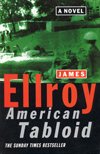 American Tabloid by James Ellroy
American Tabloid by James Ellroy
I read American Tabloid when it came out in 1995. It was my first Ellroy novel. By the end of the year, I’d read everything he’d written, but this is still the one. In American Tabloid, Ellroy created unforgettable characters and wrote with an energy and jazz not seen before. It taught me a crime novel could be dense, complex, linguistically experimental yet totally riveting and addictive. It brought history and politics into the mix and exploded the possibilities of crime fiction.
Submitted by Stav Sherez
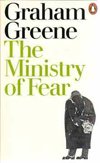 The Ministry of Fear by Graham Greene
The Ministry of Fear by Graham Greene
Not one of Greene’s better known books but an absolute classic in the vein of The Thirty-Nine Steps. But even when Graham Greene was writing what he termed his ‘entertainments’, there was always a sense of profundity not far behind his writing, so that even while the plot rattles along thrillingly the reader remains almost unconsciously aware that they are in the hands of someone wise and deeply thoughtful who just happens to be making you want to turn every page for the next twist.
Submitted by Christopher Yates
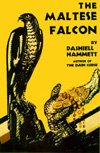 The Maltese Falcon by Dashiell Hammett
The Maltese Falcon by Dashiell Hammett
When you think of the stuff that was being written in England at the time (the book came out just three years after the last set of Conan Doyle’s Sherlock Holmes stories and predates Agatha Christie’s richest vein of form), there’s something breathtakingly hard, and real, and modern about Hammett’s work. Like the good bits of Hemingway without the self-importance. And it brought toughness to crime fiction. Toughness and something like realism. Like most readers, I think Hammett was eclipsed by Raymond Chandler, but if you want to rediscover the source of everything? It’s got to be Hammett.
Submitted by Harry Bingham
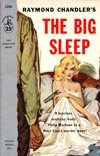 The Big Sleep by Raymond Chandler
The Big Sleep by Raymond Chandler
I don’t know how it happened, but in the decade between my eighth and eighteenth years I graduated from the Nancy Drew series to books written by the mystery master, Raymond Chandler. I loved the wry humor of his detective hero, Philip Marlowe who unravels the clues, and lives, of those who hire him. In Chandler’s plots, nothing is ever as it seems. We read — and re-read them — for the voice and word play as much as for the mystery. I love The Big Sleep. Tons of double-dealing, McGuffins, and plot twists. Sublime!
Submitted by Josie Brown
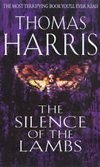 The Silence Of The Lambs by Thomas Harris
The Silence Of The Lambs by Thomas Harris
This is crime writing at its finest. It combines mythic and fairy tale elements that will make it a timeless classic even when technology moves on to make its contemporary forensics obsolete. The Beauty (Starling) and The Beast (Lecter) meets Ovid`s Metamorphoses (Jame Gumb – the shape shifter). Strange but true: the US first edition of Red Dragon, Lecter is not mentioned in the blurb. Classic.
Submitted by Mark Roberts
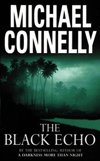 The Black Echo by Michael Connelly
The Black Echo by Michael Connelly
To me a classic crime novel is one that sticks in the mind and stands the test of time. There are so many to choose from but my 1992 classic is Michael Connelly’s The Black Echo that introduced me to LAPD homicide detective Hieronymus ‘Harry’ Bosch. For me, this debut was simply the best I’d ever read up to that point and his was the book that hooked me into reading crime fiction. Connelly is a master storyteller whose books take pride and place on my shelves. One day, when I have time, I’d like to read them all again.
Submitted by Mari Hannah
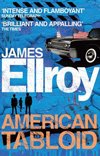 American Tabloid by James Ellroy
American Tabloid by James Ellroy
American Tabloid is Ellroy’s riff on John F Kennedy’s thousand day reign, a densely-plotted, richly evocative back story that ties historical events into the author’s dark, murderous imaginings. Three characters try to serve their various masters – the Kennedys, Howard Hughes, the Mob, the CIA and Edgar Hoover. They fail, each one’s moral compass hopelessly spinning as a rigged election leads to broken promises, the Cuban Missile Crisis and Kennedy’s motorcade passing through Dealey Plaza. Ellroy’s genius is selling you his version of events as the truth in a reality-shaking book where such childishly simple notions as good and evil are simply not applicable.
Submitted by Cam Winstanley
 A Simple Plan by Scott Smith
A Simple Plan by Scott Smith
The story of Hank Mitchell, his brother Jacob, and their discovery of $4.4 million in a downed plane in the Minnesotan wilderness, is a classic tale of greed, its effects, and ultimately its consequences. Smith’s writing is gorgeous, a beautifully crafted vision of an everyman’s corruption, but – perhaps more impressively – it’s also a lightning-paced page-turner. The darkness of its original denouement was changed for the Sam Raimi film adaptation five years later, but the novel’s ending, although violent, encapsulates perfectly the awful journey Hank – willingly, lucidly – embarks upon.
Submitted by Tim Weaver
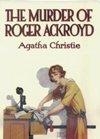 The Murder of Roger Ackroyd by Agatha Christie
The Murder of Roger Ackroyd by Agatha Christie
I first read this book when I was about 13, and I’ve returned to it many times since. It’s got just about everything: Poirot, as well as a character Christie herself said was a precursor to Miss Marple; simple language but a complex plot; and, a delightful twist that set the crime fiction community buzzing with indignation when it was first published. I adore the fact that Christie chose to break the rules with this book. Like all the best classics, I’m still happy to take this journey even though I know the destination.
Submitted by Cathy Ace
 The Spy Who Came in from the Cold by John le Carre
The Spy Who Came in from the Cold by John le Carre
There are many reasons to choose le Carre’s classic Cold War novel. I’m not the only one to judge this as probably the best thriller ever written, but at a personal level it’s also the book that led me beyond the (just as formative) Fleming/Maclean thrillers of my teenage years. The Spy Who Came in from the Cold has almost no pyrotechnics, but it’s still impossible to stop turning the pages. It’s a book that relies on plot, characterisation and writing that is perfectly evocative of the period. This book demonstrates that when everything else is done perfectly, you don’t need set-piece thrills to be thrilling.
Submitted by Mark Chisnell
 Death on the Nile by Agatha Christie
Death on the Nile by Agatha Christie
I’ve kind of outgrown Agatha Christie which I devoured as a teenager in place of children’s books. But even now I adore the final explanatory scene from Death on the Nile, one of her best books. Because the passengers are a polyglot international group, the grating social peculiarities of the England-based books are largely missing not to mention the solution is vintage Christie.
Submitted by Steve Dunne
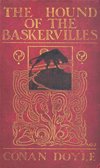 The Hound of the Baskervilles by Arthur Conan Doyle
The Hound of the Baskervilles by Arthur Conan Doyle
For me you simply can’t beat Arthur Conan Doyle’s 1902 The Hound of the Baskervilles. It creates tension, mystery and atmosphere. It’s a classic on so many levels but apart from the frightening imagery of Dartmoor it was the candlelight in the window and polished boots outside the hotel room that stay to me to this day. A wonderful story, Conan Doyle at his best, this is the one that brought Holmes and Watson to my home and my heart. It remains to this day one of my favourite adventures in crime.
Submitted by Miles @MilosRambles








